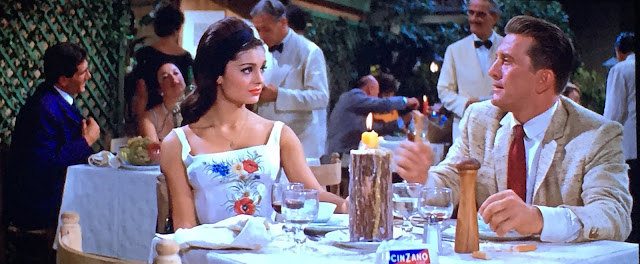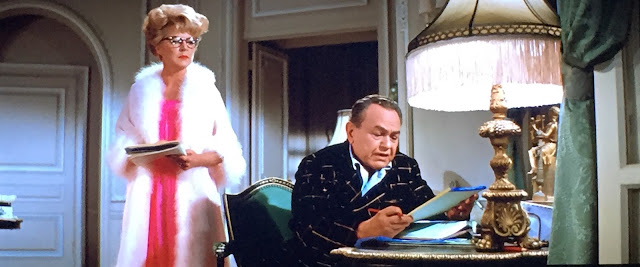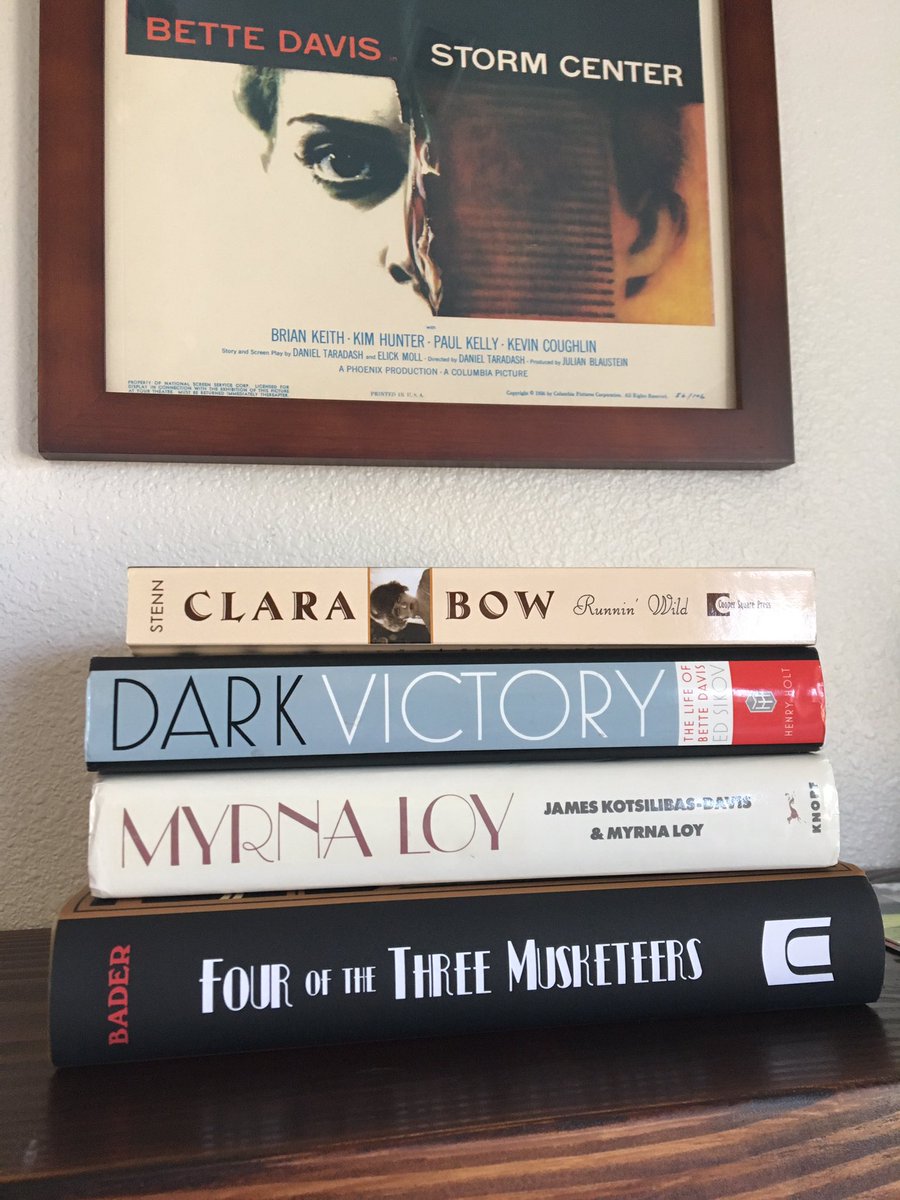"What does she mean to you? Two weeks of company in another town?"
It's no secret that the film industry loves remakes and sequels. Take an established story and characters with a following, slap on a number and a new story line or give it a fresh take with a new crew and wait for the financial rewards to come rolling in. It's riskier to take a chance on a new story than to revisit a tried and true formula. And as long as there are movies, there will always be filmmakers revisiting previous successes.
Two Weeks in Another Town (1962) is
The Bad and the Beautiful (1952) non-sequel you didn't know you wanted. Both are backstage MGM melodramas about the film industry, both star Kirk Douglas, both are directed by Vincente Minnelli and both share the same crew including producer John Houseman, composer David Raskin and screenwriter Charles Schnee. Just take the essence of the original, give it a new story, film it at Cinecitta in Rome and set it ablaze with Metrocolor and you have
Two Weeks.
Based on the novel by Irwin Shaw,
Two Weeks in Another Town follows the story of Jack Andrus (Kirk Douglas), a former actor whose spent the past few years in an asylum recovering from his mental breakdown. His old director, Maurice Kruger (Edward G. Robinson), summons him to Rome where he's working on a new film at Cinecitta. At first it's just a small gig, $5,000 in Jack's pocket and a chance to work on a movie set again. But Kruger, eager to capture the filmmaking magic they once had, wants Jack to stick around and offers him the job of dubbing supervisor. When Kruger has a heart attack, most likely brought on by his overbearing wife Clara (Claire Trevor), his tormented star Davie Drew (George Hamilton) and his temperamental female star Barzelli (Rosanna Schiaffino), Jack takes over as director. The project and his romance with budding young actress Veronica (Dahlia Lavi) breathes new life into Jack but his ex-wife, actress Carlotta (Cyd Charisse), threatens to destroy him.


Jack Andrus is the perfect role for Kirk Douglas. His character is intense, emotional and temperamental but also serves as the hero the audience wants to champion. George Hamilton's method actor, pseudo-James Dean type is supposed to be characteristic of Jack before his breakdown but Hamilton wasn't a good fit for the part, something that he admitted to himself. It's also unclear why his character is so tormented in the first place. His character and many others are caricatures of film industry types or are just plain misogynistic: the innocent beauty, the angry old hag, the jaded assistant, the temperamental actress, the destructive femme fatale, the tyrant director, the heartless film reporter, and so on and so forth. The film does tap into an interesting philosophical query: can you be true to your authentic self when your life is devoted to pretending to be other people? There are a few moments where I thought the film was really going to explore this but then it went right back to the melodrama.
And melodrama it was. Over-the-top is the best way to describe
Two Weeks in Another Town. From the characters, the music, the plot, and the absolutely bonkers car crash but not quite a crash sequence with Douglas and Charisse. I couldn't help comparing Two Weeks with another Kirk Douglas film
The Arrangement (1969). In that film he's an ad executive who is frustrated with his job and his passionless marriage, he has a nervous breakdown which leads to a terrible car accident that he miraculously survives. He finds some joy in a romance with a younger woman (Faye Dunaway). In the Two Weeks, Douglas' Jack, before he goes to Rome, is a film star, frustrated with his job, in a toxic marriage, has a nervous breakdown which leads to a terrible car accident that he miraculously survives. Both movies are not great but I found them to be enjoyable and I had fun comparing the two.
Two Weeks in Another Town was a bomb at the box office and garnered terrible reviews. Director Minnelli was quoted as saying "It's painful to talk about the ruin of that film even now." The magic of
The Bad and the Beautiful, which won 5 Academy Awards and was nominated for a 6th, couldn't be captured ten years later in a new setting. Scenes from the original are shown in
Two Weeks. In the story Kruger is its director and Jack its star and they are watching the film to understand what filmmaking magic the two had lost and how can they recapture it.
Two Weeks was the final project for screenwriter Charles Schnee who died the year of its release. The film also reunited Claire Trevor and Edward G. Robinson who were both in another beloved classic movie,
Key Largo (1948).
Should you bother with
Two Weeks in Another Town (1962)? My answer is a resounding yes. If you don't come to it with high expectations and you embrace the melodrama you can be treated a simple and beautifully styled movie. I enjoyed the on location shooting in full color, performances by some of my most favorite actors, and exquisite costumes and decor. I wanted to jump into the movie, steal some goodies and go back to 2018 with my haul. In the film Kirk Douglas drives a beautiful Maserati which I appreciated for its retro body style but car enthusiasts will love because it's a rare model, a 3500 GT Vignale Spyder, that has been made the rounds with vintage car collectors and is still in existence today.
Collection. When you use my buy links you help support this site. Thanks!
Warner Archive Wednesday - On (random) Wednesdays, I review one title from the Warner Archive Collection. Thank you to Warner Archive for sending me the Blu-Ray of Two Weeks in Another Town (1962) to review!























